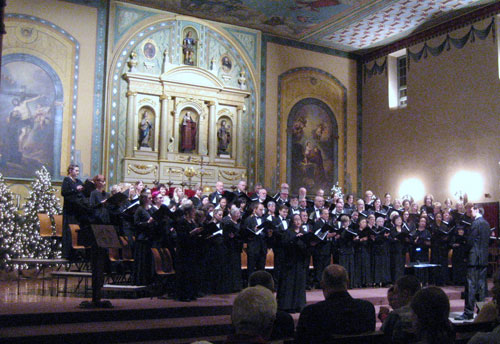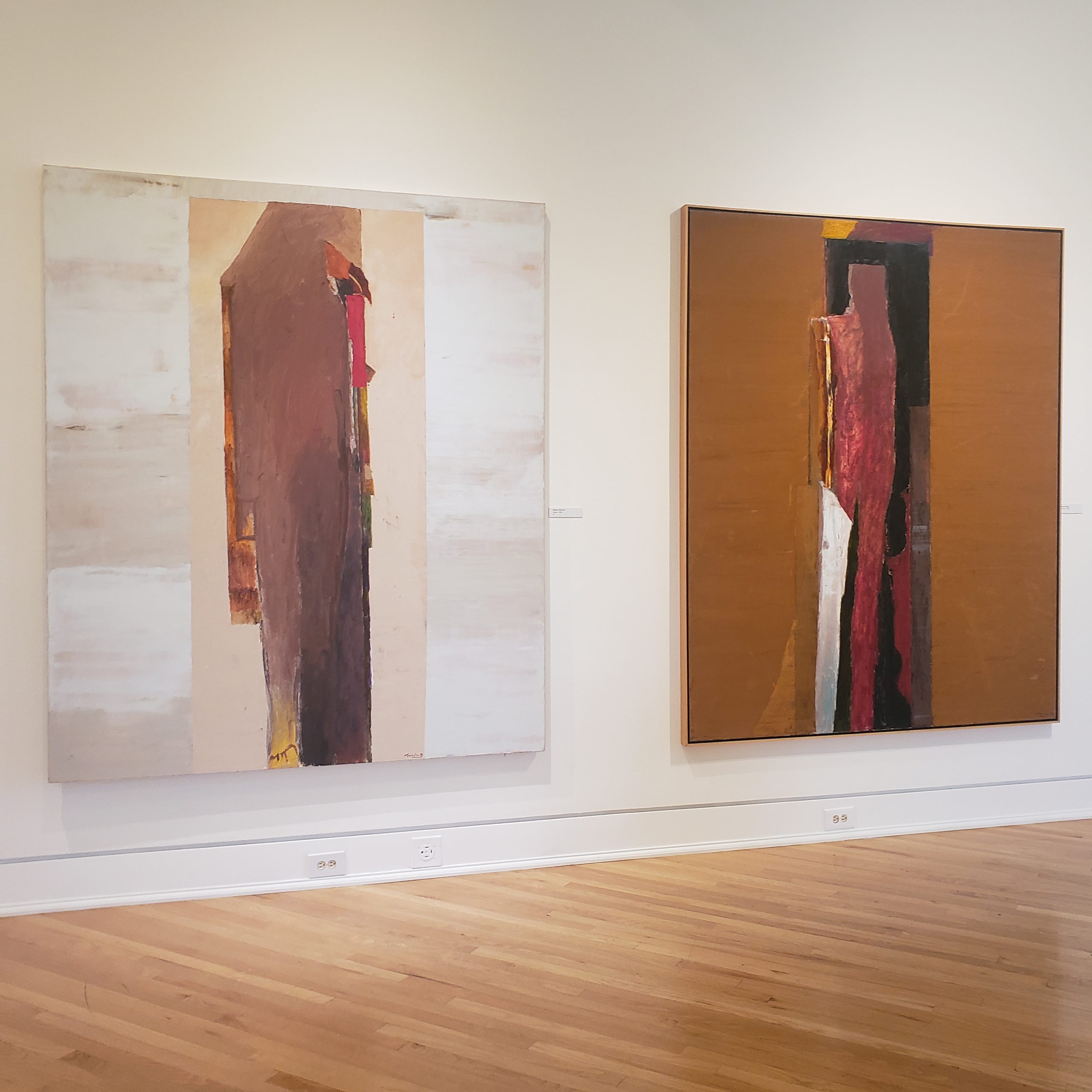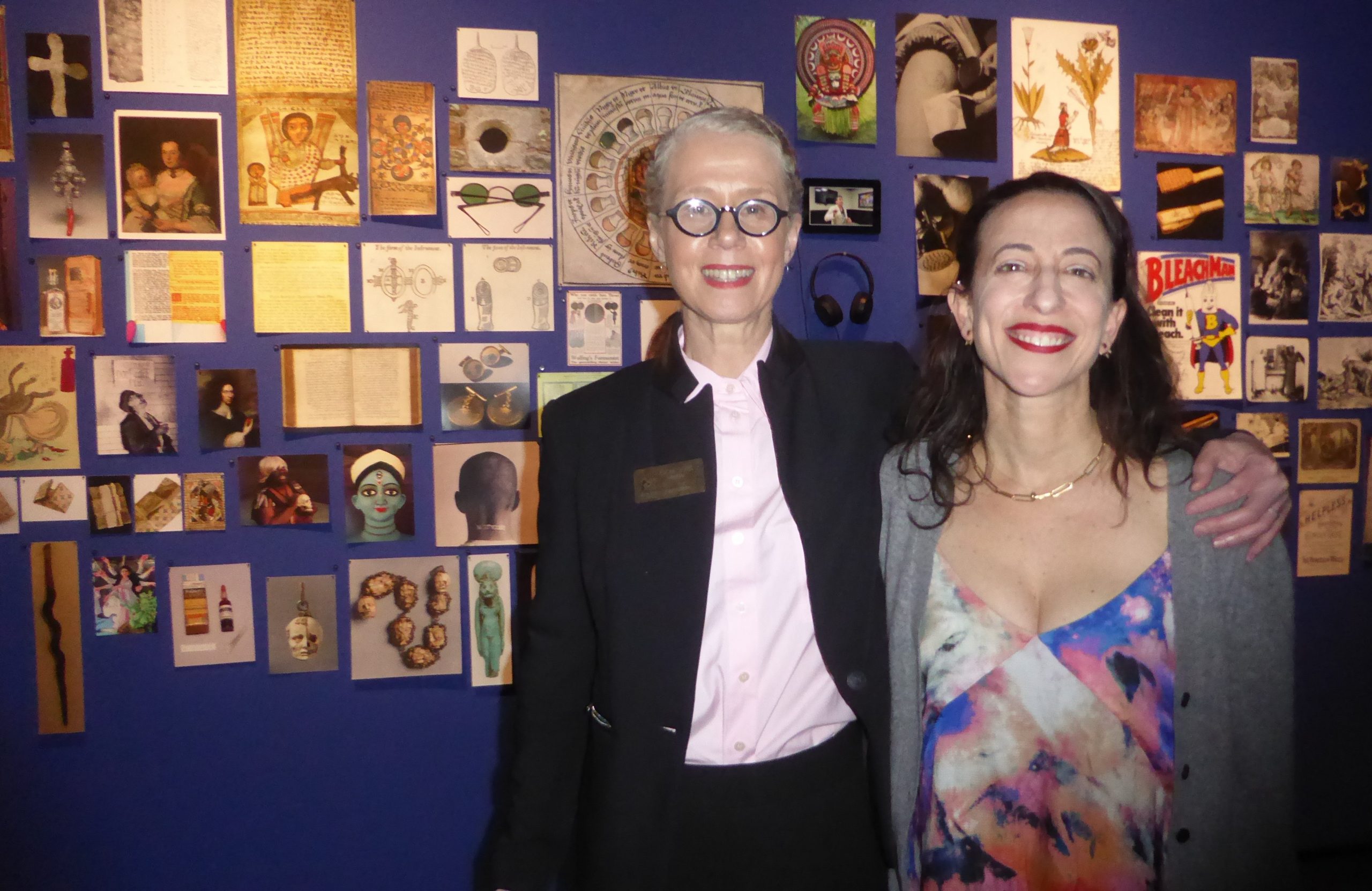

In a poignant juxtaposition of war and peace, the Santa Clara Chorale commemorated the WWI true story of “The Christmas Truce” of 1914 at its annual holiday concert Dec. 12 and 14 at Mission Santa Clara.
This year is the centenary of the Christmas Eve and morning when German and Allied troops at various locations along the Western Front of Europe put down their weapons in spontaneous and unofficial ceasefires and exchanged Christmas carols with each other.
Private Frederick W. Heath, in a letter home published Jan. 9, 1915, wrote: “…Light after light sprang up along the German front. Then quite near our dug-outs, so near as to make me start and clutch my rifle, I heard a voice, there was no mistaking that voice with its guttural ring. With ears strained, I listened, and then, all down our line of trenches there came to our ears a greeting unique in war: ‘English soldier, English soldier, a merry Christmas, a merry Christmas!’
For the first half of “The Christmas Truce” concert, the Santa Clara Chorale, led by artistic director Scot Hanna-Weir, sang carols that were sung on the English front and then carols from the German front. Between carols, moving excerpts were read from letters written by soldiers at the front.
“And there in the searchlight they stood, Englishman and German, chatting and smoking cigarettes together midway between the lines … After this we remained the whole night through, singing with the enemy song for song,” wrote an unnamed WWI soldier.
“Come Let Us All Sweet Carols Sing,” “See Amid the Winter Snow,” and “While Shepherds Watched Their Flocks,” sang out voices in English and Latin in the beautiful setting of Mission Santa Clara. “O Tannenbaum,” “O du Froliche,” and “Stille Nacht” sang out voices in German.
“I enjoy how they’re taking hymns and putting them in a historical context,” says audience member Rushton Hurley. “There’s such a contrast between the peaceful beauty of the music and what one of the writers in the program notes called ‘the insanity of war.”
The second half of the program included “Coventry Carol” and “Flanders Fields,” putting the Truce in the larger context of war.
“…We are the Dead. Short days ago We lived, felt dawn, saw sunset glow. Loved and were loved, and now we lie In Flanders fields.”
While most pieces in the program were sung a cappella, James Welch provided piano and organ accompaniment for some, including the closing carol, in which the audience stood to join the Chorale in singing: “Adeste fideles/O Come All Ye Faithful,” a carol the Germans and Allied troops sang simultaneously in English and Latin, uniting the two warring sides in one voice.
“And I thought, well, this was really a most extraordinary thing-two nations both singing the same carol in the middle of a war,” wrote Rifleman Graham Williams.
“The concert was very moving for me because it seems inconceivable in our angry world. The faith that’s spoken by these carols transcends even hatred. It’s so relevant today,” says Los Gatos resident Dale Bracey, adding, “But that [truce] couldn’t happen today because there is no shared faith across the battle lines.”
“It’s so relevant today, to find a moment when you can connect with beautiful music,” adds Chorale member Elsbeth TeBrake.
“Scot’s a really special director. He came up with this idea of a concert about the war stopping for Christmas. It’s a great thing to do to show the power, the impact, of Christmas,” says Ron Paradies, president of the Santa Clara Chorale Board of Directors.
The Chorale is a nonprofit community organization with high artistic standards that welcomes new members. Its next concert is the family-friendly “Wild Things,” an exploration of the animal kingdom through music March 14, 2015, 3 p.m., in Palo Alto at St. Mark’s Episcopal Church and March 15, 2 p.m., at Mission Santa Clara on the campus of Santa Clara University.
For information, visit www.scc.org or call the Chorale hotline: (408) 535-8636. “Friend” the Chorale on Facebook.




